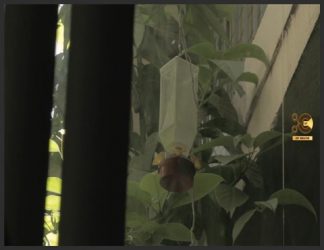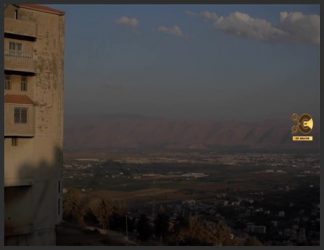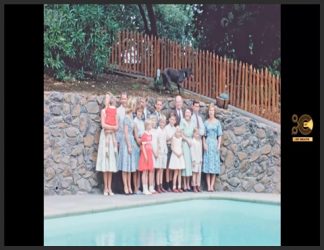You must need to login..!
توضیح
مستند کوتاه خارجی qi yue 7th-month
برای دانلود رایگان مستند کوتاه خارجی qi yue 7th-month با کیفیت 720p از پلیر سایت یا لینک زیر استفاده کنین
لینک دانلود link download
ژانر: کوتاه , مستند
امتیاز :
سال ساخت : 2010
مدت پخش : 10:36
زبان فیلم : انگلیسی
ساخت کشور چین
کارگردان:
بازیگران:
درباره فستیوال شبح : جشنواره شبح ، همچنین به عنوان جشنواره شبح گرسنه ، Zhongyuan Jie (中元節) ، Gui Jie (鬼節) یا جشنواره یولان (چینی سنتی: 盂蘭盆 節 ؛ چینی ساده شده: 盂兰盆 节 ؛ پینیین: Yúlánpénjié) شناخته می شود جشنواره سنتی بودایی و تائوئیستی که در برخی از کشورهای شرق آسیا برگزار می شود. طبق تقویم چینی (تقویم قمری) ، جشنواره شبح در پانزدهم شب ماه هفتم است (چهاردهم در مناطقی از جنوب چین).
در فرهنگ چینی ، روز پانزدهم ماه هفتم در تقویم قمری ، شبح نامیده می شود و ماه هفتم به طور کلی ماه شبح (as 月) در نظر گرفته می شود ، که در آن ارواح و ارواح ، از جمله اجداد متوفی ، بیرون می آیند از قلمرو پایین متمایز از جشنواره Qingming (یا روز جارو مقبره ، در بهار) و جشنواره نهم دو (در پاییز) که فرزندان زنده در آن به احترام اجداد متوفی خود ادای احترام می کنند ، در طول جشنواره شبح ، اعتقاد بر این است که متوفیان به دیدار زنده ها می روند.
در روز پانزدهم قلمروهای بهشت و جهنم و قلمرو زندگی باز است و تائوئیست ها و بودایی ها مراسم را برای تغییر و تحمل مصائب آن مرحوم انجام می دهند. ذات ماه شبح بزرگداشت مردگان است ، جایی که به طور سنتی فرزندان فرزندان فرزندان حتی پس از مرگ آنها به اجداد آنها نیز تسری می یابد. فعالیتها در طول ماه شامل تهیه غذای مناسکی ، سوزاندن بخور ، و سوزاندن کاغذ جاسوس ، نوعی کاغذ ماشینی از وسایل مادی مانند لباس ، طلا و سایر کالاهای خوب برای روح بازدیدکنندگان اجداد است. وعده های غذایی مفصل (غالباً وعده های غذایی گیاهی) با صندلی های خالی برای هر یک از افراد متوفی در خانواده ارائه می شود که با فرد متوفی طوری رفتار می کنند که گویی هنوز زنده هستند. پرستش نیاکان آن چیزی است که جشنواره Qingming را از جشنواره شبح متمایز می کند ، زیرا مراسم دومی احترام به همه متوفیان ، از جمله نسل های همان نسل و جوان را در بر می گیرد ، در حالی که نسل اول فقط نسل های قدیمی را شامل می شود. جشن های دیگر ممکن است شامل خرید و آزاد کردن قایق ها و فانوس های کاغذی مینیاتوری بر روی آب باشد ، که به معنای دادن راهنمایی به ارواح و ارواح از دست رفته اجداد و سایر خدایان است.
The Ghost Festival, also known as the Hungry Ghost Festival, Zhongyuan Jie (中元節), Gui Jie (鬼節) or Yulan Festival (traditional Chinese: 盂蘭盆節; simplified Chinese: 盂兰盆节; pinyin: Yúlánpénjié) is a traditional Buddhist and Taoist festival held in certain East Asian countries. According to the Chinese calendar (a lunisolar calendar), the Ghost Festival is on the 15th night of the seventh month (14th in parts of southern China).
In Chinese culture, the fifteenth day of the seventh month in the lunar calendar is called Ghost Day and the seventh month in general is regarded as the Ghost Month (鬼月), in which ghosts and spirits, including those of deceased ancestors, come out from the lower realm. Distinct from both the Qingming Festival (or Tomb Sweeping Day, in spring) and Double Ninth Festival (in autumn) in which living descendants pay homage to their deceased ancestors, during Ghost Festival, the deceased are believed to visit the living.
On the fifteenth day the realms of Heaven and Hell and the realm of the living are open and both Taoists and Buddhists would perform rituals to transmute and absolve the sufferings of the deceased. Intrinsic to the Ghost Month is veneration of the dead, where traditionally the filial piety of descendants extends to their ancestors even after their deaths. Activities during the month would include preparing ritualistic food offerings, burning incense, and burning joss paper, a papier-mâché form of material items such as clothes, gold and other fine goods for the visiting spirits of the ancestors. Elaborate meals (often vegetarian meals) would be served with empty seats for each of the deceased in the family treating the deceased as if they are still living. Ancestor worship is what distinguishes Qingming Festival from Ghost Festival because the latter includes paying respects to all deceased, including the same and younger generations, while the former only includes older generations. Other festivities may include buying and releasing miniature paper boats and lanterns on water, which signifies giving directions to the lost ghosts and spirits of the ancestors and other deities.















